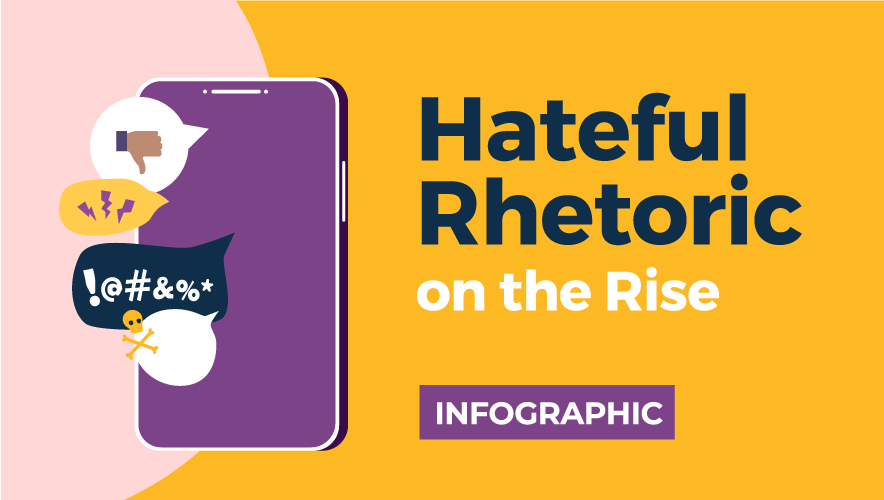Chinese Platforms: Is TikTok the Tip of an Off-Shore Iceberg?
China exerts remarkable control over its domestic information environment. Through a combination of access controls, surveillance, and punishments, it can suppress—even anticipate—dissent.
Concurrently, armies of bots, paid influencers, and conscripted state and private company employees amplify the Chinese Communist Party’s messaging, drowning out alternative narratives and voices.
Until recently though, China’s efforts to shape or reshape international discourse have been less well understood. A recent U.S. State Department report, however, details the ways in which the Peoples Republic of China (PRC) is seeking to mold other nations’ domestic and global narratives. China’s methods include bots, fake accounts, and influencers, as well as acquisition or control over foreign media outlets and influencers, technology exports that embed China’s digital surveillance and control mechanisms, and even economic threats or coercion of individuals and organizations.
Chinese technology platforms such as WeChat and TikTok play an important part in these activities, and the report will likely add fuel to growing efforts to ban the apps in the United States and other countries. But while domestic concerns are paramount in considering app restrictions, the global implications of the rise of Chinese platforms—particularly in emerging economies—has been much less considered.
The emerging economies, or the Global South, consist of more than 100 nations. The Organization of Economic Cooperation and Development (OECD) and other sources project that by mid-century, these nations will represent the majority of the world’s GDP and economic growth—as well as more than 80 percent of its population. These countries will also hold majority voting rights in global institutions such as the United Nations. China’s efforts at shaping global discourse and commerce may be better understood in this light. So might its efforts to position itself as a leader of this group of nations.
To these ends, the potential for Chinese platforms to contribute to reshaping business, power, and influence globally could be far reaching. This is particularly so if they were to achieve pre-eminence in these nations as preferred social media, e-commerce, and logistics platforms. Currently, their prospects for doing so look good, with growth enabled by four key drivers.
Innovation and Envelopment
Chinese platforms are among the most innovative globally. TikTok did not invent the short video format, but it perfected it through Bytedance’s investment in advanced algorithms and human response mechanisms.
In the United States, TikTok has a remarkable market penetration rate of 54 percent. But in Mexico it is 76 percent, in Vietnam it is 86 percent, and in Malaysia it is 100 percent for digital users over the age of 18. In Africa, TikTok is the fastest growing app, already reaching 40 percent of those aged 18 to 40.
And TikTok is not alone. In less than five years, Chinese company Shein has become the world’s largest and most popular fast fashion retailer. Chinese owned Yalla is among the most popular social media apps used in the Middle East; Bigo Live, a live-streaming platform, claims some 400 million users in 150 countries; and there are many others.
Innovations such as these have enabled Chinese platforms to capture increasing market share both from those new to the Internet and among established users. These platforms are now leveraging their large and growing user bases in a competitive strategy called platform envelopment, or—more simply put—adding new services such as e-commerce, search, and news to their existing services.
In the United States, some 26 percent of individuals aged 18 to 30 say they now get their news from TikTok, in Africa it is 15 percent and growing. And recent surveys show that a majority of Gen Z users prefer TikTok to Google as a search engine. Innovation and expansion are keys to the success of most businesses. Chinese platforms now appear to be outpacing many Western platforms globally in these key attributes and, by some measures, in key aspects of artificial intelligence as well.
China’s Digital Silk Road
China’s platforms have benefited from the PRC’s Digital Silk Road Initiative (DSR). The DSR is an important component of China’s global Belt and Road Initiative (BRI)—a $1 trillion plus infrastructure investment program designed to link countries more closely to China.
The DSR is building the digital connectivity and services many nations around the world aspire to. Companies such as Huawei, ZTE, Hikvision, and more are heavily engaged, but so are platform companies such as Alibaba, Tencent, Bytedance, and others. Digital e-commerce and social media platforms scale with the expansion of Chinese data centers, cloud computing, and the core Internet infrastructure that some 200 plus Chinese firms are delivering. More than 140 countries are reported to have signed BRI memoranda of understanding (MOUs) with China. Many of these, especially after COVID-19, are looking at digital infrastructure.
Through DSR support and their own initiatives, major Chinese platforms are now among the most prevalent and popular globally. E-commerce giant Alibaba operates in more than 190 countries, TikTok in more than 150 is the world’s most downloaded app, Tencent (the parent of WeChat) is the world’s largest video game owner and operates in more than 100 countries worldwide.
Technology Alignment and Standards
One of the objectives of the DSR is to expand Chinese technology adoption around the world, and with that, China’s technology standards. These efforts are taking place not only as China builds and supplies many nations’ Internet infrastructure but also as China seeks to set global technology standards. China’s installed footprint, particularly in many emerging markets, means that as technology decoupling with the West proceeds, many countries may be locked into China’s technology ecosystem. With that will come not just Chinese supplied technologies but potentially China’s surveillance and control default settings. Moreover, in a large number of countries in the Global South where China is delivering digital infrastructure, it also has a role in managing that infrastructure and those digital services—particularly in regards to data.
China’s dominance in delivering what is referred to as the Internet technology stack (from fiber optic cables and wireless communication through data centers to software applications) gives it not only surveillance capabilities but also the ability to shape the data environment transpiring on that stack (including devices). In this setting, Chinese platforms could play a critical role in distributing and reinforcing Chinese messaging and interests, while the stack restricts access to Western sources of information.
Even independent of the stack, Chinese platforms are heavily engaged in China’s influence efforts. Chinese social media app, WeChat, censors speech that China finds politically sensitive—not only in China but across the world. For example, WeChat “deplatformed” Australia’s Prime Minister when he sought to respond to Chinese disinformation spread on the app. Chinese platforms have amplified Russian misinformation on the war in Ukraine. TikTok’s parent, Bytedance, censored negative news about China on Indonesia’s primary news aggregator app, BaBe, which it owns. And more recently, The Wall Street Journal found that Chinese Internet giants had erased Israel’s name from their maps. These efforts are often combined with influence efforts that leverage Western platforms, to amplify their effects.
Internet Governance
Together with the export and installation of Chinese digital technologies and the attempt to align global technology standards to its favor, China is also promoting an alternative form of Internet governance. Modeled on its domestic environment, China is championing a governance model that is designed to restrict the free flow of information between and within countries and to enable surveillance and control systems very similar to its own.
As it exports its technology and standards, it is often exporting the means and methods to implement this alternative governance. On the global stage it promotes this as Cyber Sovereignty with appeal to many countries concerned by the excesses and discord they witness in the West’s Internet environment. In Africa, for example, studies show that many leaders favor stronger Internet controls as a means to manage social and political discontent. And worldwide, Freedom House reports that freedom on the Internet continues to decline, with countries from the Philippines to Costa Rica increasingly imposing Internet controls to manage mis- and dis-information—as well as political discord online.
In combination, these factors, especially for emerging economies, create a potentially alternative Internet environment, one likely dominated by Chinese technologies and platforms rather than Western ones. There is abundant evidence that platforms shape public discourse, commercial behavior, supply chains and logistics, and even elections. The implications of Chinese platforms pre-eminence could be significant if their influence powers are tuned to support Chinese businesses, supply chains, and political objectives.
Security Implications
As Western businesses diversify supply chains, many are looking to emerging economies in Southeast Asia, Africa, and Latin America. To the extent these countries rely on Chinese digital infrastructure and, particularly, Chinese platforms, there are potential risks not only of surveillance and capture of sensitive business information but of delays or constraints to order fulfillment. For example, the Chinese company, LOGINK, provides the world’s leading logistics management platform. The US-China Economic Security Commission has raised multiple concerns regarding LOKINK’s ability to capture shipping data and possibly constrain or accelerate different types and origins of cargos.
In e-commerce, social influencers have significant impact on product sales and satisfaction. Platforms can favor and promote specific influencers (and therefore products and opinions) over others. Chinese companies, products, and services might easily be consistently favored over Western equivalents—taking increasing market share from Western firms.
This same capacity to favor and amplify certain voices over others is the basis for Chinese efforts to influence opinions and outlooks around the world. The result is a world where opinions are already highly fractured over issues such as the Russian invasion of Ukraine and the Israeli-Hamas war. On Chinese platforms, these diverging views can be further amplified and reinforced. Where Chinese platforms become pre-eminent, how might opinions be shaped in numerous countries around the world? What might that mean for social unrest or attitudes toward the West? And what might that mean for the ability to mobilize global opinion and resources for national security purposes?
Despite these risks, China’s platform pre-eminence is not foreordained. The PRC’s crackdown on Chinese technology companies has diverted some of their investment from global expansion to domestic initiatives prioritized by the CCP. These include investments in AI and the industrial Internet.
Moreover, growing concern in Western nations and in the Global South regarding China’s technology strategy may encourage diversification—if the solutions and pricing are right. India, for example, has already banned most Chinese apps. Further, the advances and application of AI in the West may provide a competitive advantage for Western platforms, at least in the short-term.
Nevertheless, many components of China’s four-pronged strategy are well underway. We are already seeing marked shifts in attitudes and commerce globally. It remains uncertain whether Western efforts will turn this tide or if in fact, with all its attendant consequences, the world will divide between those with predominantly Western technology and apps and those with predominately Chinese.
Peter Raymond is a senior associate with the Simon Chair in Political Economy at the Center for Strategic and International Studies (CSIS). He has worked for many years as a consultant to businesses and governments on infrastructure development and market reforms around the world. He holds a Doctorate in International Affairs from Johns Hopkins School of Advanced International Studies.
© 2023 Peter D. Raymond











